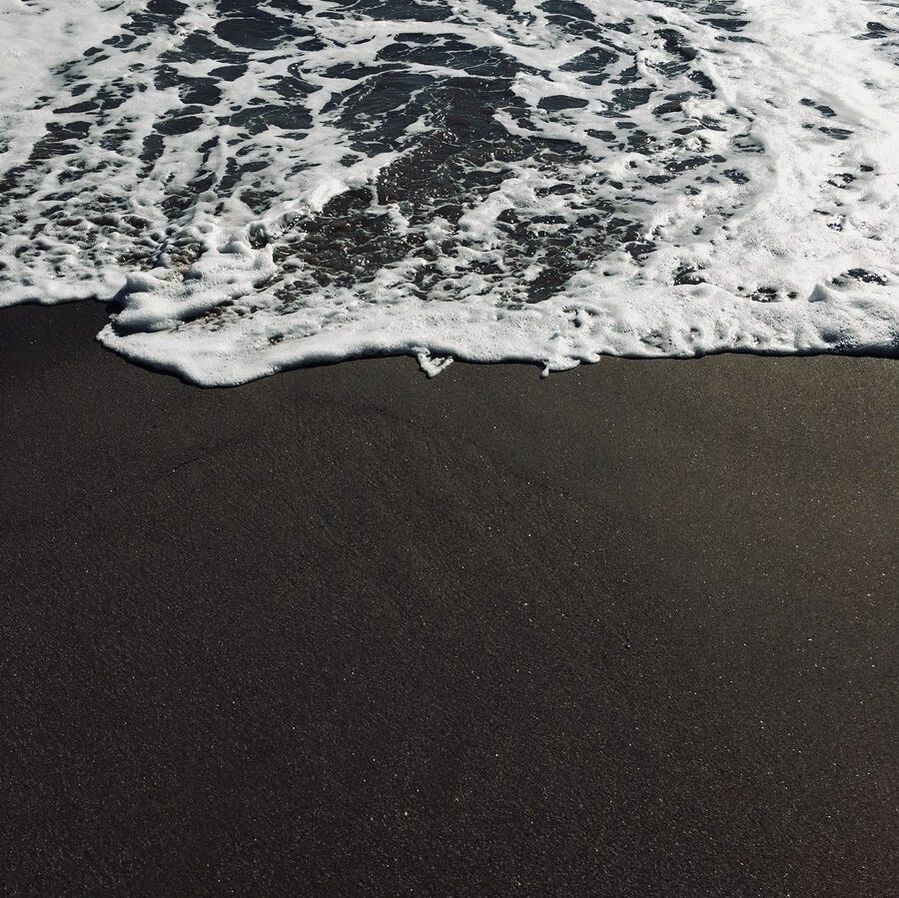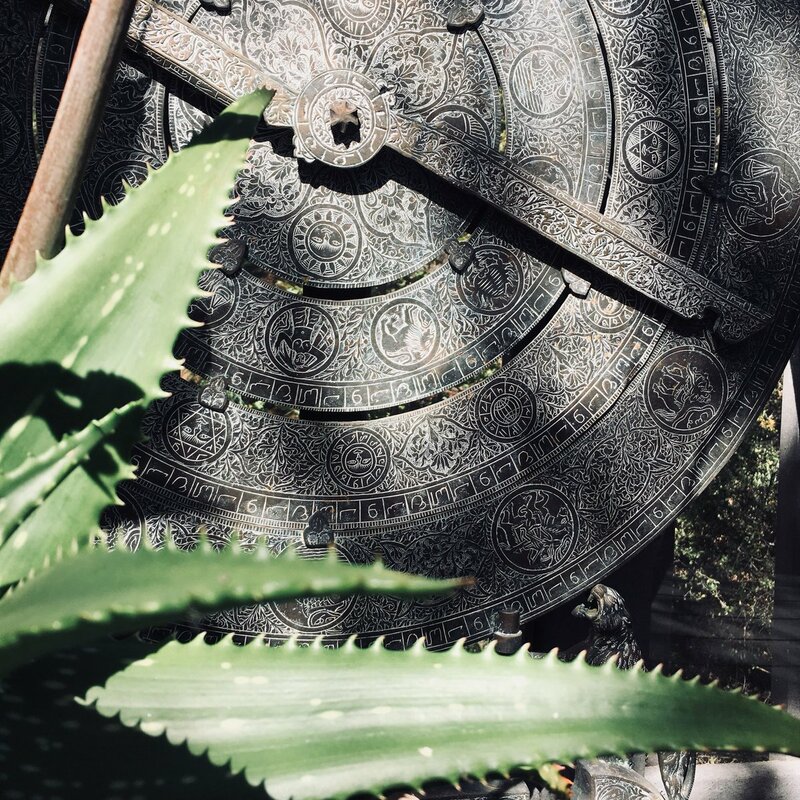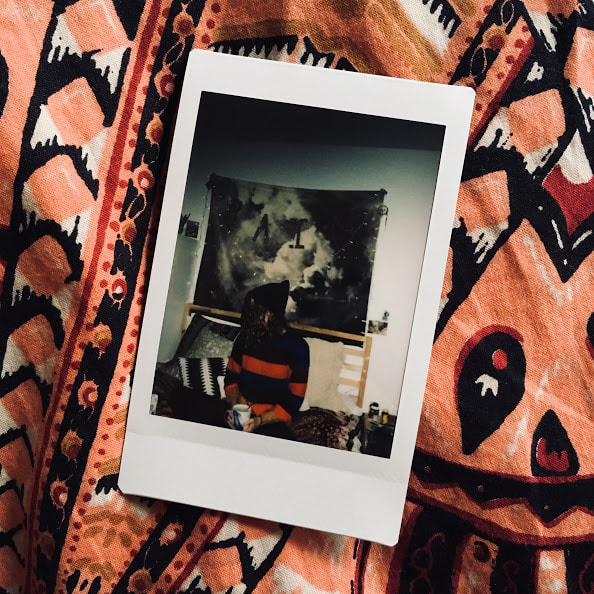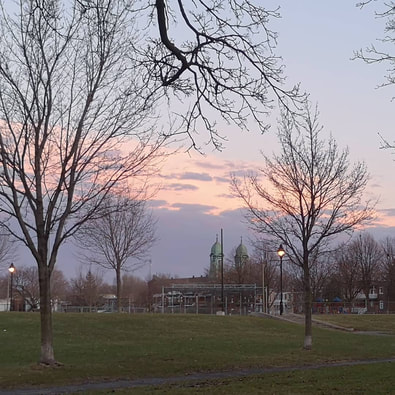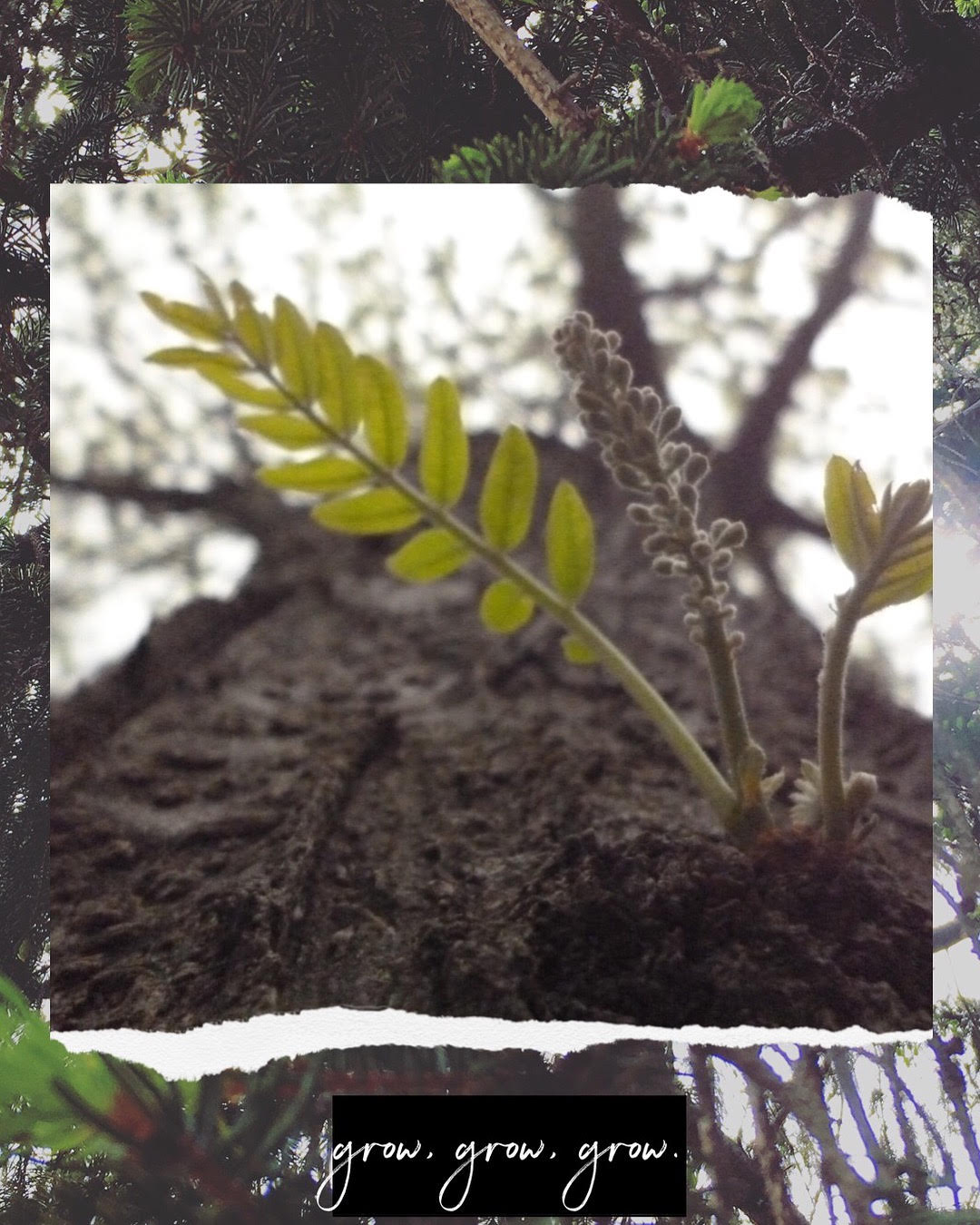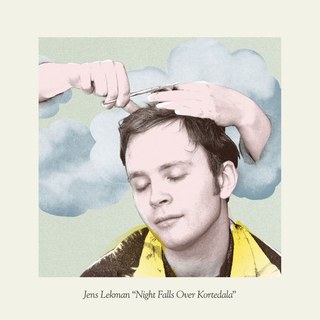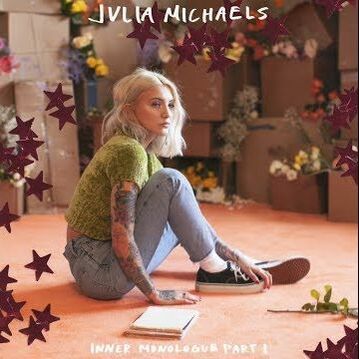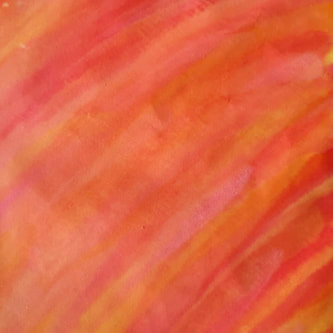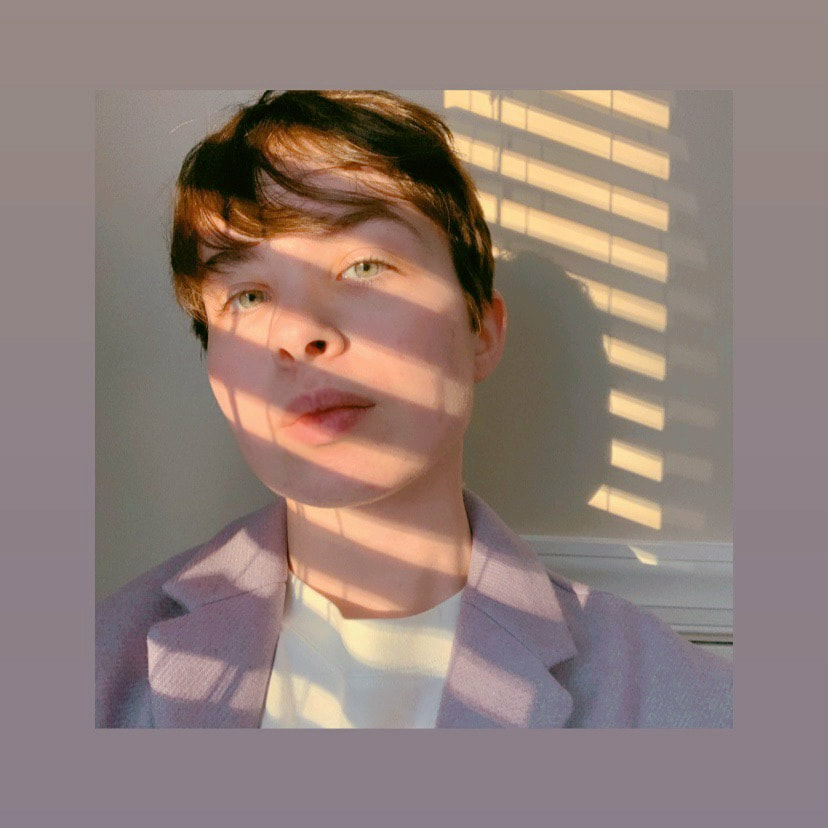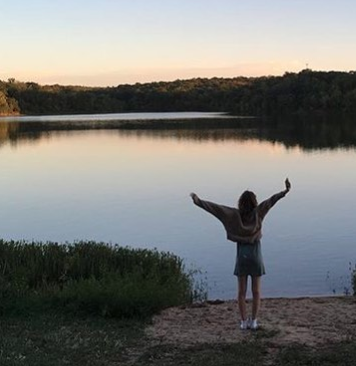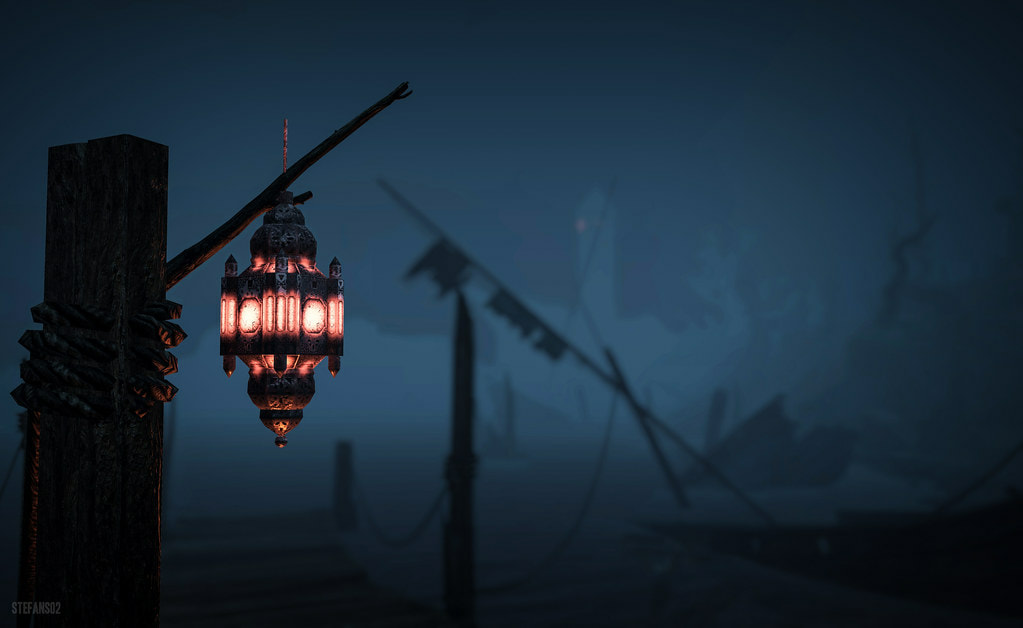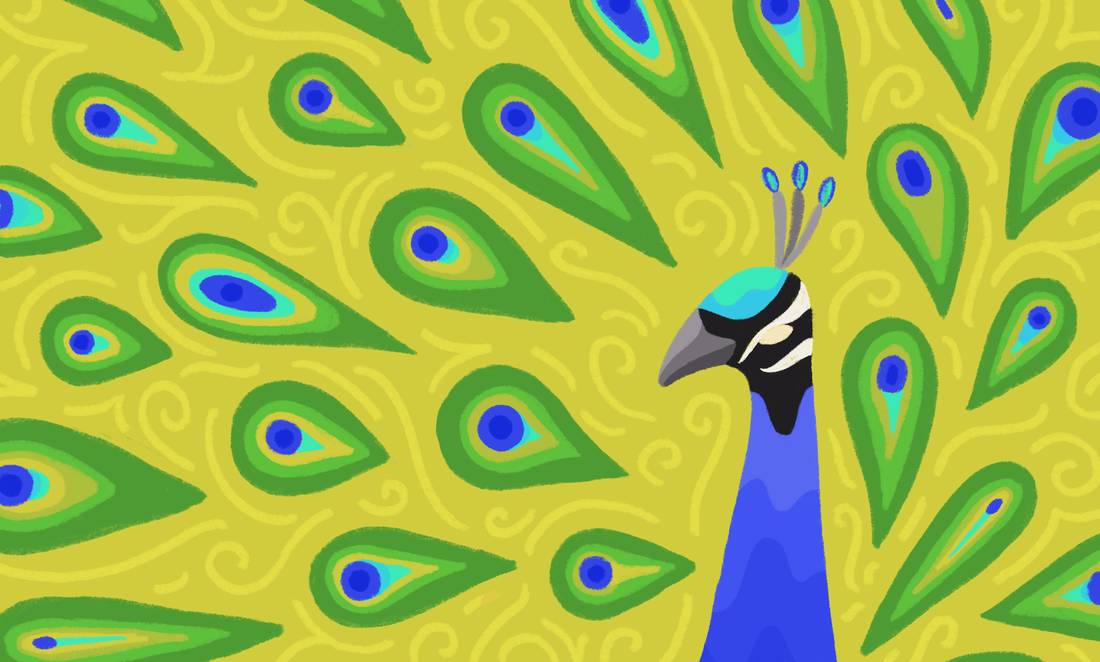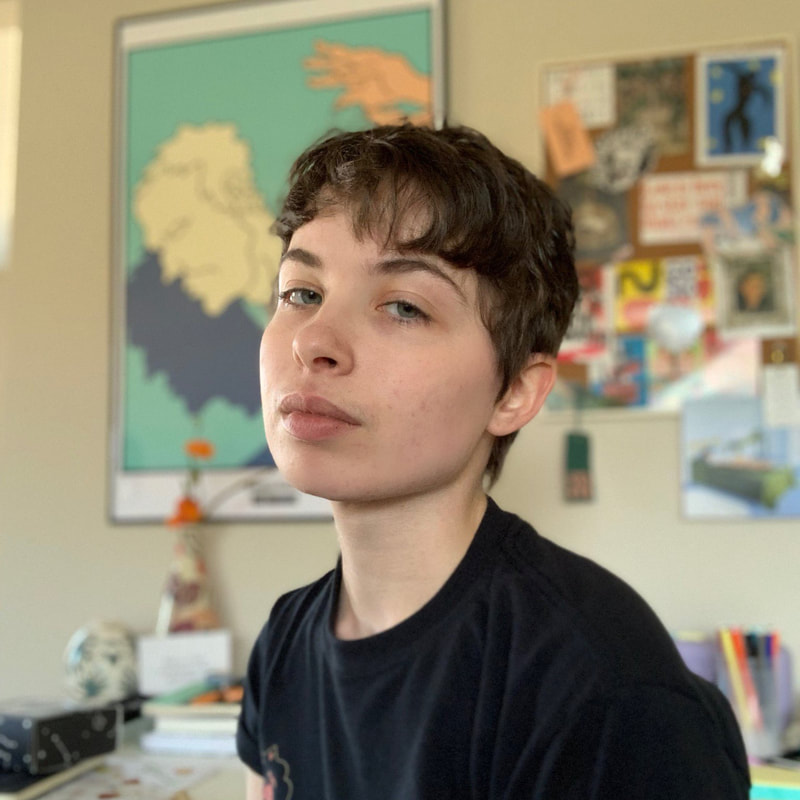|
hello growing things, we've been reading your submissions, and let me tell you... i'm smitten. thank you for you and your words. i'm your fan. issue one will be shaping up beautifully... if you want to get in on it, please head over to the submit page! we would love to have you. in the mean time, i'd love to have more mini one off issues laden with a theme... will you join us? submit to mini issue one: safest brave spacesshow us where you feel most yourself. where you feel pushed to become. where you feel cozy in the cocoon. take a photo of your bed, with or without your body. maybe your body is your safe place. maybe it's the field behind the line of trees. maybe it's a hug with your pup or human loved ones. maybe it's a book. a song. perhaps it's as simple as your favorite tea and a notebook. take a photo. write a list. curate a playlist. write a poem. give us your recipe. what makes your perfect safe place? we will be accepting through july 1st. submit anything, no limit, to [email protected], with SAFE in the subject line.we're getting both cozy and brave... join us?
namaste, m
1 Comment
That feeling during the fourth movement of a symphony where the whole orchestra plays, and the sound swells and flows and finally, finally, something out there sounds exactly like how you feel inside, and everything is culminating, and you know, you just know you’re one with the Universe. That feeling. That’s why I love classical music. How it goes through your chest and fills up your lungs and shines out of you like sunbeams. And so much more. I’ll address a few criticisms on classical music and why I think it’s an element of interest anyway. First: Classical music is the kingdom of cis white men. That’s true. I cannot argue that classical music isn’t extremely white-washed, as are pretty much all primarily Western things from that time. Although there is some debate around Beethoven’s ethnicity, the fact remains that, in most people’s minds, he lives on as a white man. Samuel Coleridge-Taylor was, however, without a doubt, biracial. That being said, I do encourage you to smash the gender binary and never assume that anyone is anything. That’s a discussion for another day, though. When I stream classical music, I make an effort to stream from a variety of contemporary musicians. I encourage you do the same. But yes. Absolutely. Classical music comes with a history of oppression. So do medicine, literature and sports. I think this history is important to acknowledge and change. Let’s do it together. Second: Classical music is elitist. I’m so sorry that you were confronted with people who made you think you were too uneducated to enjoy classical music. I’m sorry you were shushed when you clapped after the first movement of the symphony. I’m sorry your music teacher made you feel bad about yourself. Those things genuinely make me sad because you deserved better than that. No one deserves to be shushed for clapping once the orchestra stops playing. No kid deserves to feel bad at school. As I’ve just written, classical music comes with a history of oppression. We don’t need to keep that going. We have the power to change that. I’ll try my best. Third: Classical music is stuffy. Not to pull a Sebastian-from-La-La-Land, but classical music has caused riots. That’s hardcore. Have you seen Amadeus (1984)? That’s hardcore. Chopin had an affair with an author who went by George Sand. That’s hardcore (though George Sand herself was so much more hardcore than Chopin). Tchaikovsky dealt with widespread and internalized homophobia for decades. That’s hardcore. Have you heard Beethoven’s Fifth Symphony and imagined it being played in 1808? That’s hardcore. Vivaldi died in poverty in 1741 and “[m]any of his compositions were written for the all-female music ensemble of […] a home for abandoned children.” (Wikipedia) That’s hardcore. Classical music is so hardcore! Fourth: Classical music is too old to still be relevant. Amazing new songs are being written every day. Yes. I agree. It’s important to support artists who are alive. Yes. I agree. I definitely agree. Aside from the many, many classical musicians still alive today, I think classical music as an art form is still relevant as a creator of discussion. It’s a reason to think more, talk more, listen more, share more. It’s a reason to ask one another questions. Did you like this? Why or why not? What were you thinking about while you were listening? What did this remind you of? What do you think this piece meant when it premiered, hundreds of years ago? Do you think people hummed the main theme in the streets? Do you think strangers stopped them and said: “Oh, you heard the latest Beethoven too! Wasn’t it amazing?” Kids learning to play classical? That’s even more important, I think. Playing music in ensembles taught me to listen. It taught me to wait. It taught me the value of hard work. It taught me tolerance. It taught me solidarity. It taught me trust. It taught me the extraordinary hugeness of what we can do when we work together. How are kids supposed to learn those lessons from playing music together when adults don’t value the type of music they play? Finally, please forgive the hyperbolic comparison, but are mountains too old to still be relevant? Stonehenge, the Moai on Easter Island, the Sphinx of Giza – are they too old to still be relevant? Those monuments of nature and humanity are still relevant because they’re beautiful. Because they’re puzzling. Because we look at them and we’re breathless with the immensity of what we humans can achieve when we put our minds to it as a group. When someone has a wild idea and we listen instead of fearing and chastising. I want to be one who listens.
(…) Here it is: hello, some days are difficult for me to live through… not necessarily because they are hard, but sometimes things are so good i don’t know how to hold it. i’ve been reading about overcoming imposter syndrome, and one night i understood some things about my view of myself: i tend to define myself by what i do, and not who i am. when what i do changes, even only slightly, my sense of self is disturbed. i also divide myself into selves based on context, though not in that good girl/bad girl way that people think teenagers do… mostly my access to words and self changes based on context. when these selves cross paths, i feel shame, fearing i am less authentic. funny, because the merging of my selves makes me more myself than ever. so i need to remember this: i can be both-and, and all. multi-faceted. deeper. some days, i simply do not recognize my self. and on these days, i need to settle into my body, into my self. to question what matters. what is beauty, in my eyes. what makes me feel. what i want to do. my intention in every situation. sometimes this simply means i put clove and tangerine oils in my diffuser. maybe i eat outside and steep in sunlight. maybe i do a little yoga. do my skincare slowly. and sometimes it means i read nonfiction, or fiction, or poetry. poetry always does that thing to me, whether i write it or read it. it asks me to see and feel the world, without remaining an apathetic observer. to appreciate something, even if it’s the wording of something hard to swallow. it’s national poetry month, so i’ve added some poems that i think are worth reading or listening to. i hope you find something that brings the color back to your world, and helps you feel a little more like yourself. let us know if there’s anything we should try. we love to hear from you. namaste, the light in my recognizes and honors the light in you, m poetry→ still i rise, by maya angelou, performed on so you think you can dance, for survival → laugh with god, by madi mae parker, for becoming → for the dogs tho barked at me on the sidewalks in connecticut by hanif abdurraqib, for meeting yourself → angel of the get through, by andrea gibson, for your best friends → the future, by neil hilborn, for your hardest days → things that could happen to a girl wearing jeans, by rhiannon mcgavin, when politics gets too much → how to be a poet under the new regime by roberto montes, on being → self portrait with no flag by safia elhillo, for pledging allegiance → joy seekers, by levi the poet, for easter listening→ Elgar’s Nimrod (Variation IX) from Enigma Variations. listen when in pain, for the reminder than in every hurt there is longing, and in every longing there is hope. nadine: this month’s classical love is a staple. apparently, according to the song’s wikipedia, it’s played pretty much all the time (i’m exaggerating, but only a little). this enigma variation was dedicated to Elgar’s closest friend, August Jaeger; it’s the story of how Jaeger encouraged him to push through pain and keep making music. in a letter to Jaeger, Elgar wrote that each variation had been written borrowing the voice of a friend, “if they were asses enough to compose.” to me, the Nimrod variation is a reminder of what a powerful balm sincere encouragements can be. i hope it catches you at the right time. → Happy by Julia Michaels (released in Inner Monologue Part 1, jan. 24, 2019). listen if you feel like dancing and feeling sorry for yourself at the same time. nadine: mmm who doesn’t like a good sad pop anthem?? this one’s been stuck in my head all month. (also worth noting that i think this song needs to be taken with a certain measure of self-deprecating humour; it’s absolutely not necessary or even useful to “kill relationships for art.”) → Night Falls over Kortedala by Jens Lekman gray: a long time favorite album of mine, and my favorite Jens Lekman album. every year, for me, this album seems to usher in the beginning of spring. the dancey instrumentals and silly, lovelorn lyrics will never cease to feel brand new to me, even on the thousandth listen. → Mississippi by Kevin Abstract m: the outro to the brand new ep ghettobaby, this song had me both tearing up and dancing at my desk. it’s homey and homesick at the same time. watching→ Guava Island m: i’m of the opinion that Donald Glover can do no wrong, and i am right again. this time, glover is flanked by Rhianna and Lititia Wright *heart eyes* reading→ The Future is Feminist edited by Jessica Valenti m: a brilliant intro to feminism, spanning much time and differing schools of thought. each essay is different both in subject and mood (yes, some will make you smile.) despite the hot pink and orange text (I couldn’t read the quotes in orange), i love it. i want it. this is intersectional, empowering, accepting feminism, and i feel empowered creatively and mentally. → “Why Do I Always Have a Crush on Someone?” by Heather Havrilesky “The trick is not to stop wanting. The trick is to stop abandoning yourself and your life every time you want something. The trick is not to stop eating. The trick is to stop blaming yourself for your hunger.” as a chronic crusher, this piece makes me feel validated and made me think a lot about how i exist in relation to and treat my romantic/etc desire. → With the Fire on High by Elizabeth Acevedo m: Acevedo’s first book, The Poet X, was incredible, and so many thought so. Her second book releases May 15, and let me tell you… it is spicy and sweet and warm and bright. Emoni is a single mama, a girl who adores cooking, and a high school senior. this life is so much pressure, but so full of love. highly recommend, not just for the story, but also for the beautiful writing. → Keep Going: 10 Ways to Stay Creative in Good Times and Bad by Austin Kleon m: i feel like this book is a guide to life. all you need to know right now is that it’s austin kleon’s new book. perhaps i’ll give it its own blog post. sipping + eating→ thai coffee, strong and sweet and spicy. good for chatty dinners over stir fry noodles or productive afternoons. → lemonade. it’s already hitting temps of 80F here, so i might as well lean into the summer weather with a classic drink that happens to be a favorite of mine. → ginger matcha ice cream with dark chocolate chips. healthy for your heart. thinking→ nadine: how are the hindering things i do benefitting my fake self? what can i do to stop the negative cycle where my self-sabotage fuels my negative self-beliefs? procrastination, i’m looking straight at you. i will not let you make me angry. → nadine: i want peace of mind, but i am constantly looking for ways to make my life more intense, dramatic, exciting. in my journal, i have written: “why am i not that person now? thick fabrics, plants, light. a big garden. who is this person & what has changed within him/her to bring him/her to let go of that need for drama & intensity? why is he/she content with that life? what life is that?” → m: what do i feel like i’m not allowed to do, and why? what blocks are in place before my creativity, and what have i forgotten to love as the years pass by? how can i dismantle shame → m: do i have a routine? what is my dream routine, and how can i slowly work it into my mornings, days, and nights? → m: how can i create space for other people? who have i not forgiven? → gray: time is passing whether or not i want it to. i have spent the last several months oblivious to this, stuck in a pattern of being stuck. now it’s april and i find myself trying to figure out what i’ve even been doing. a short break post-grad turned into a time where i have been questioning all my decisions and skills that i believed i had. how do i move forward with my life now that every turn is filled to the brim with uncertainty? and who am i to complain? how do i stop focusing on the path not taken? napowrimo prompts→ via nosebleedclub → via let's escapril → via winter tangerine what about you? what’s been making you think, lately, “i’m glad i stuck around long enough to discover this?” let us know!
you're a genius all the timeby Jack Kerouac 1. Scribbled secret notebooks, and wild typewritten pages, for yr own joy
2. Submissive to everything, open, listening 3. Try never get drunk outside yr own house 4. Be in love with yr life 5. Something that you feel will find its own form 6. Be crazy dumbsaint of the mind 7. Blow as deep as you want to blow 8. Write what you want bottomless from bottom of the mind 9. The unspeakable visions of the individual 10. No time for poetry but exactly what is 11. Visionary tics shivering in the chest 12. In tranced fixation dreaming upon object before you 13. Remove literary, grammatical and syntactical inhibition 14. Like Proust be an old teahead of time 15. Telling the true story of the world in interior monolog 16. The jewel center of interest is the eye within the eye 17. Write in recollection and amazement for yourself 18. Work from pithy middle eye out, swimming in language sea 19. Accept loss forever 20. Believe in the holy contour of life 21. Struggle to sketch the flow that already exists intact in mind 22. Dont think of words when you stop but to see picture better 23. Keep track of every day the date emblazoned in yr morning 24. No fear or shame in the dignity of yr experience, language & knowledge 25. Write for the world to read and see yr exact pictures of it 26. Bookmovie is the movie in words, the visual American form 27. In praise of Character in the Bleak inhuman Loneliness 28. Composing wild, undisciplined, pure, coming in from under, crazier the better 29. You’re a Genius all the time 30. Writer-Director of Earthly movies Sponsored & Angeled in Heaven "to expect too much is to have a sentimental view of life and this is a softness that ends in bitterness." -flannery o'conner allow me to set the scene: the year is 2013, i am a mousy, bookish sixteen-going-on-seventeen year old, and i have just started my senior year of high school, which would be my last year of catholic education (i had attended catholic schools all my life). i walk into my sixth period class, which, i believe, was called “christian existence” (preceded by morality in 11th grade, church history in 10th, and scripture in 9th), and quickly take my seat in the front row. i laze through the class prayer and christian music video that my teacher liked to start class with (she always turned the lights off, and it was always so hot in that classroom) and take my books out. in class we were reading the book letters to a young catholic (which, for the record, i don’t necessarily recommend. just want to be as accurate as i can!), and i flip the book open to the page number written on the board to find out that today, we are reading about another mousy, bookish young person. her name was flannery o’connor. the portion of ltayc dedicated to o’connor discussed her work as a great catholic apologist, which put her in ranks with the apostle paul and st. augustine of hippo. the book included a snippet from her posthumous collection of letters called the habit of being where o’connor recounts a discussion about the eucharist with novelist mary mccarthy at a dinner party. this occurred when flannery was still a young novelist at the beginning of her career, and mccarthy (who was more than ten years older than o’connor) had already released the company she keeps (a succès de scandale, but a succès nevertheless), was awarded a guggenheim fellowship, and had a career as a critic). i would try to give you the gist of the exchange, but no one says it better than flannery herself: Well, toward morning the conversation turned on the Eucharist, which I, being the Catholic, was obviously supposed to defend. [Mary McCarthy] said when she was a child and received the Host, she thought of it as the Holy Ghost, He being the 'most portable' person of the Trinity; now she thought of it as a symbol and implied that it was a pretty good one. I then said, in a very shaky voice, 'Well, if it's a symbol, to hell with it.’ my fascination with o’connor started in that class, with that quote. o’connor had been quiet all dinner, conscious of the reputation she had to keep and i’m sure she wanted to impress mccarthy. but when the subject of something she was passionate about came up, nothing could stop her sharp tongue. i long for a passion like that in my life. soon after this afternoon in christian existence, i read my first flannery o’connor short story, “a good man is hard to find,” the essential o’connor. there’s even a sufjan stevens song based on it. i was shocked, and the fascination increased exponentially. have you read it? it’s merciless. she does not hold back. i almost couldn’t believe it was written by the same woman who had spoken up only to defend the eucharist. to borrow from whitman: she is large, she contains multitudes. if you’re unfamiliar with o’connor’s work, allow me to write quick summaries of a few stories: entire family murdered by a band of thieves (“a good man is hard to find”); a child witnesses a baptism in a river and thinks it looks like fun, drowns (“the river”); a man spends a bus ride thinking of ways to mess with his racist mom, only for her to die the minute they get off the bus (“everything that rises must converge”); a polish refugee turned southern farm hand is run over by a tractor driven by a man who’s wife just died of a stroke (“the displaced person”); a civil war veteran dies on stage at his granddaughter’s college graduation (“a late encounter with the enemy”). do you see the pattern here? (these descriptions barely give the stories justice, please read her words.) a little while ago i was reading patricia lockwood’s memoir priestdaddy, and in it i read an incredible quote about o’connor that i had not thought of. lockwood wrote, All the while I walked more than ever. I walked past Flannery O’Connor’s house and I thought about her grotesques and her misfortunates, and I wondered, as I always did, where the mercy was located in her stories. They seemed so pitiless, as pitiless as reality, but somehow the mercy was there. Suddenly I thought, “It is located in us, it is external, she shows us the sores of the world and we are filled with a great raw feeling for them.” i was struck by the truthfulness of this. o’connor was a catholic, and chose to write about the tragedies of life as an exercise in empathy. maybe to make the reader say, this is bad, my life is not this bad, i should be kinder, etcetera. say what you want about the catholic church, but it was built on teachings of service to others, and to an extent, empathy is necessary for good service. we read about these trials and maybe, we go through our lives viewing the world as an unforgiving place, and we help each other through it. however, the mercilessness and the grotesqueries are still there. i hope i stretched well because i am now going to reach really, really far. have you read the book a little life? if you have, good, you’ll be in the loop. if you haven’t…whatever you do, don’t read the wikipedia plot summary, please. i’m being so serious. maybe read the book, maybe don’t; i’ll try to give a spoilerless recount. anyway, there is a lot of mercilessness in a little life. the main character, jude st. francis, faces trial after tribulation until the book ends exactly the way you think it’s going to. but i want to focus on one specific piece of mercilessness that may get overlooked in discussions surrounding all. about 100 pages from the end of the book, something significant happens, and jude is sent into the final despair of the novel. downward spiral doesn’t really describe it, because it wasn’t really a spiral. (sorry the writing here is so clunky but i am trying hard to not spoil anything because this isn’t even a piece about a little life.) but part of this fall included a little lawsuit. i say little because it’s barely mentioned, but if you had been on the other end of this lawsuit, it would really be anything but little. Jude decides to sue everyone even slightly related to the…er…incident. it is explicitly stated that he wants the lawsuit to ruin the people involved. he doesn’t care at all that the truck driver has a sick kid at home. it’s a very take them for all they’ve got scenario. this is not really a unique reaction for jude that only happens because he is angry and upset, another detail that gets overlooked is jude’s job as a litigator for a law firm that represents basically the devils incarnates (iirc, they rep. big pharma, banks, stuff like that).
i think that jude was a character who was used to having his power stripped away from him. there were what i could only describe as atrocities commited against him. i think, that however disagreeable, being ruthless within his profession was an attempt to be in control of someone else’s life. and now time for me to make my point. flannery o’connor was diagonsed with lupus by the time she was twenty seven, in 1952. around this time, she published her fist novel, wise blood. over the following years, she made over sixty appearances to lecture and read her works, as well as published a good man is hard to find and the violent bear it away. aside from occasionally lecturing, her daily life was harshly impacted by the lupus. i once read that her days consisted of attending mass, writing, and then reading and recuperating from both her illness and the steroids used to treat lupus. i wonder (and hope since i just wrote all of this and am saying it…) if a comparison can be made between the terror written into o’connor’s stories and the ruthlessness jude has in his professional life. when you are feeling hopeless, do you not look for some kind of control anywhere you can get it? is it cruel for me to suggest that after losing power over her own life and body, flannery o’connor sought some solace in writing mystical grotesqueries? this is bad, my life is not this bad. on the very last page of a little life, harold (jude’s adopted father) states, “and so i try to be kind to everything i see, and in everything i see, i see him.” i think this is how we should walk away from flannery o’connor’s words. she wants us to understand that in so many ways, the world is not our place, it was not made for us, and no matter how hard we try, sometimes it can only end badly. things that seem good can fool us, and things are good are always fleeting, and everyone is always a few steps behind. read her words and do not be afraid to enter the hostile world we have come to call home. treat people as well as you can and despite the risks, help those in need and always be kind. good men (“man” in the sense of all people) are hard to find, but they are out there and maybe humankind is worth it. if i may offer one firm piece of advice it would be to always check baskets for smuggled cats, and don’t turn down that dirt road, because your mother was thinking of tennessee, not georgia. xo. gray |
the cluba small collective dedicated to personal, creative, and communal growths. Archives
January 2021
Categories
All
|
